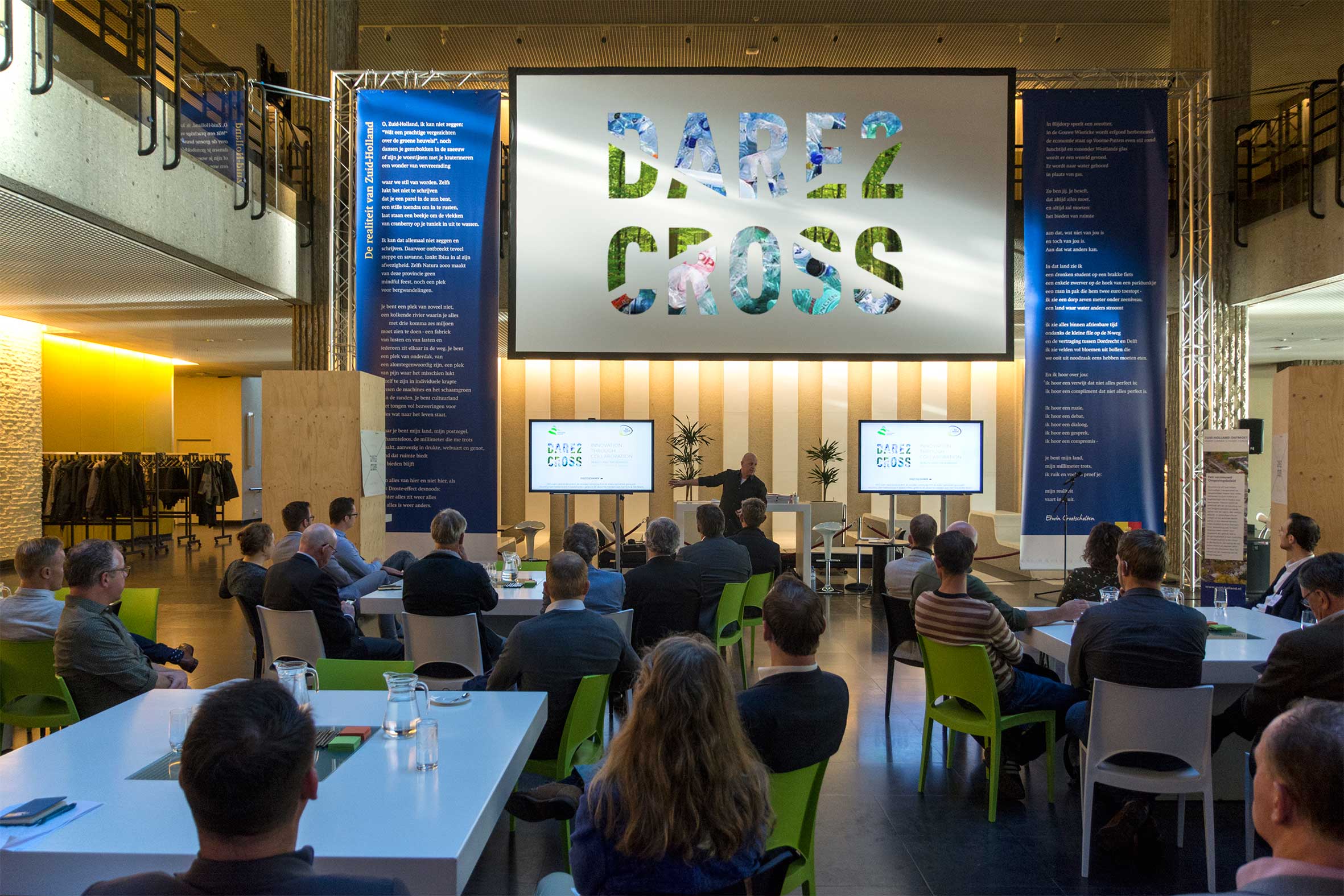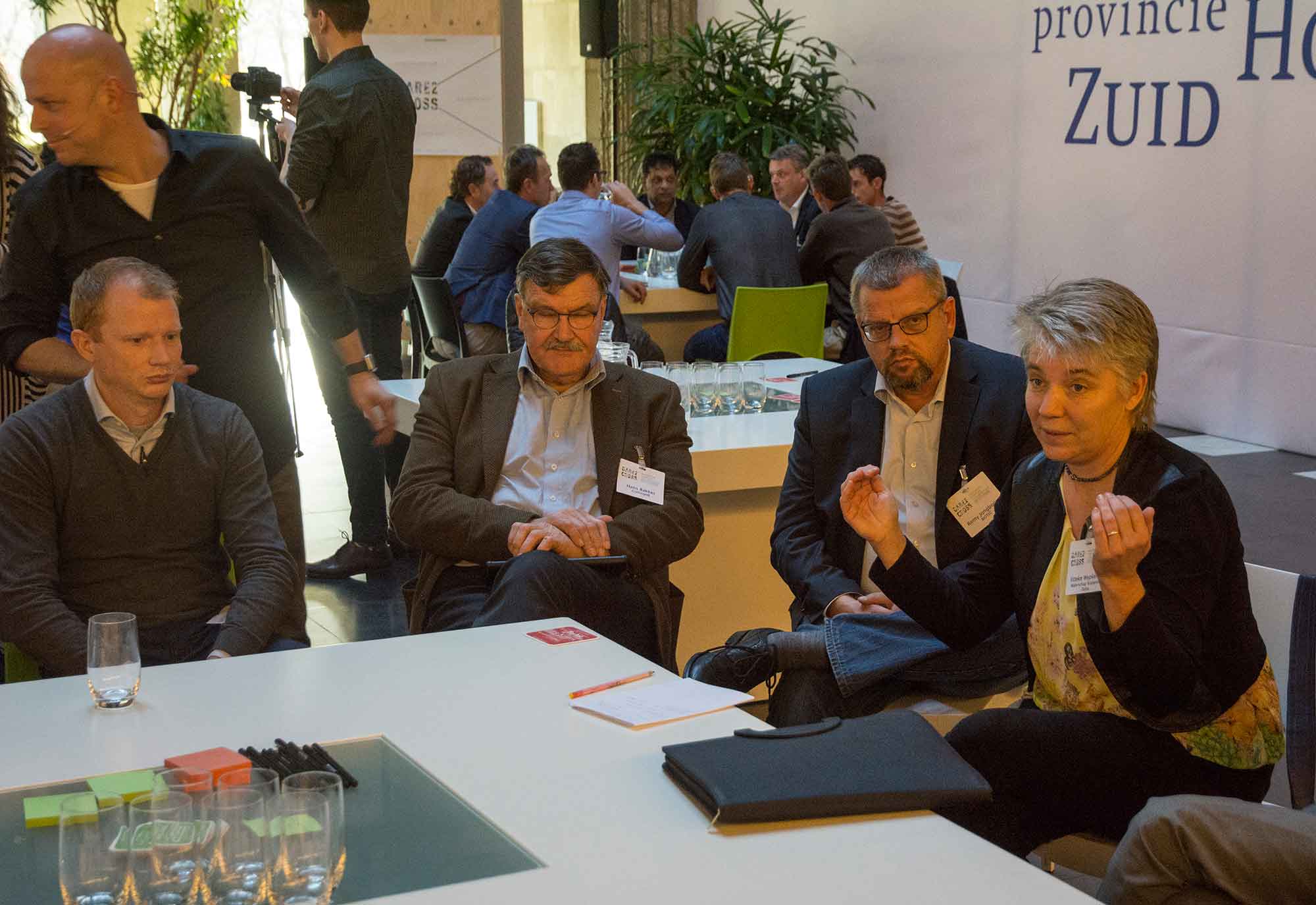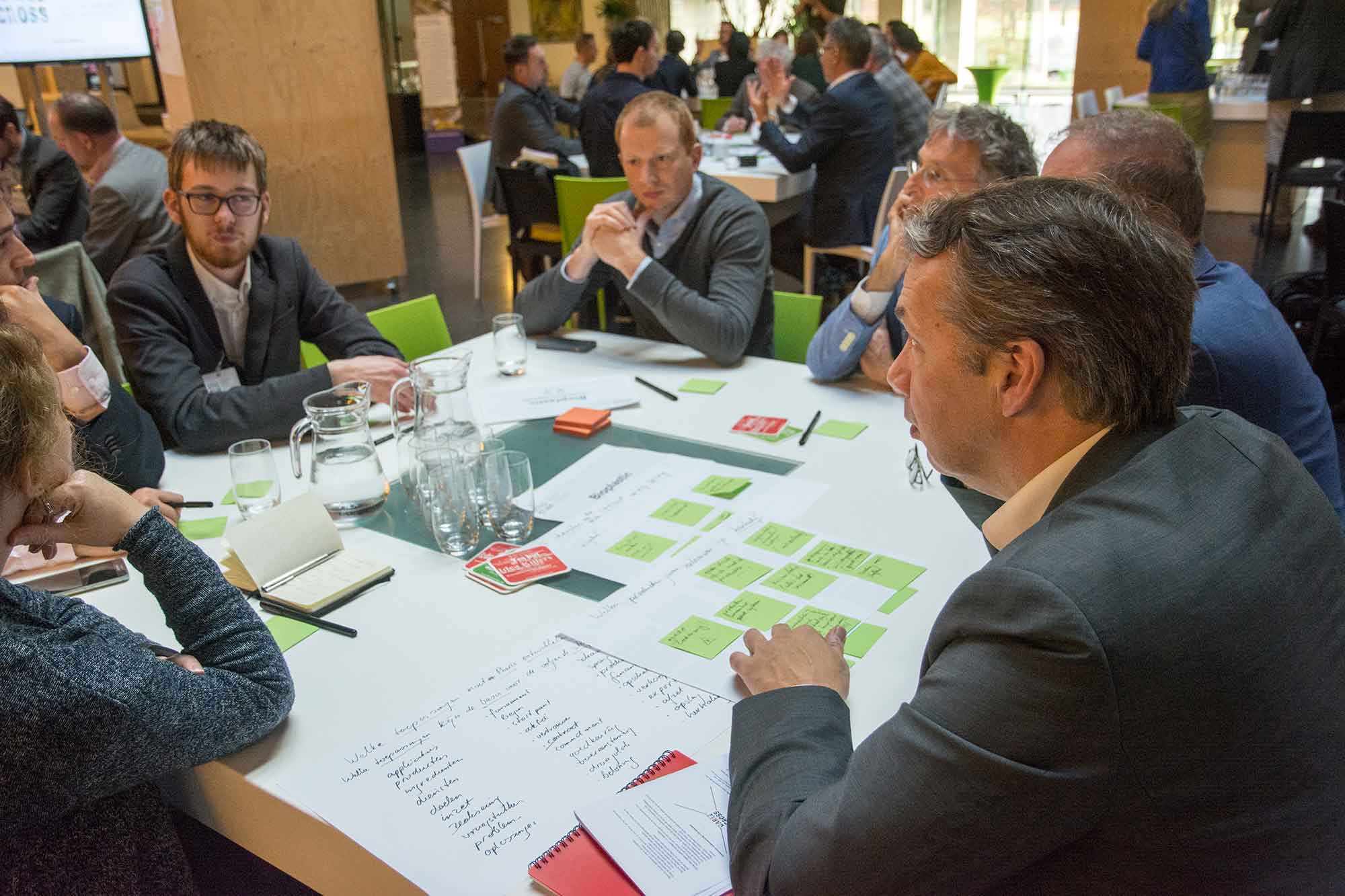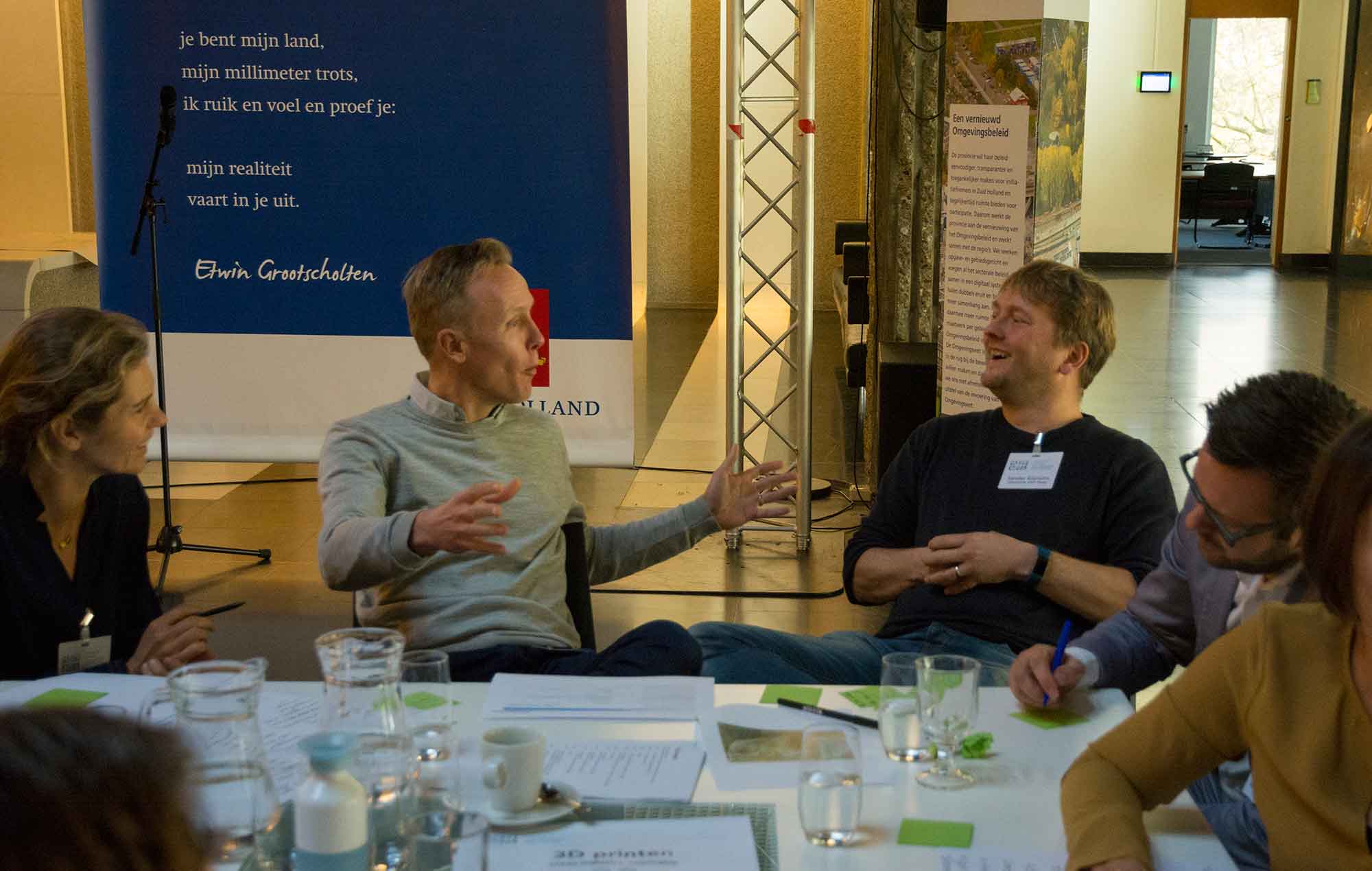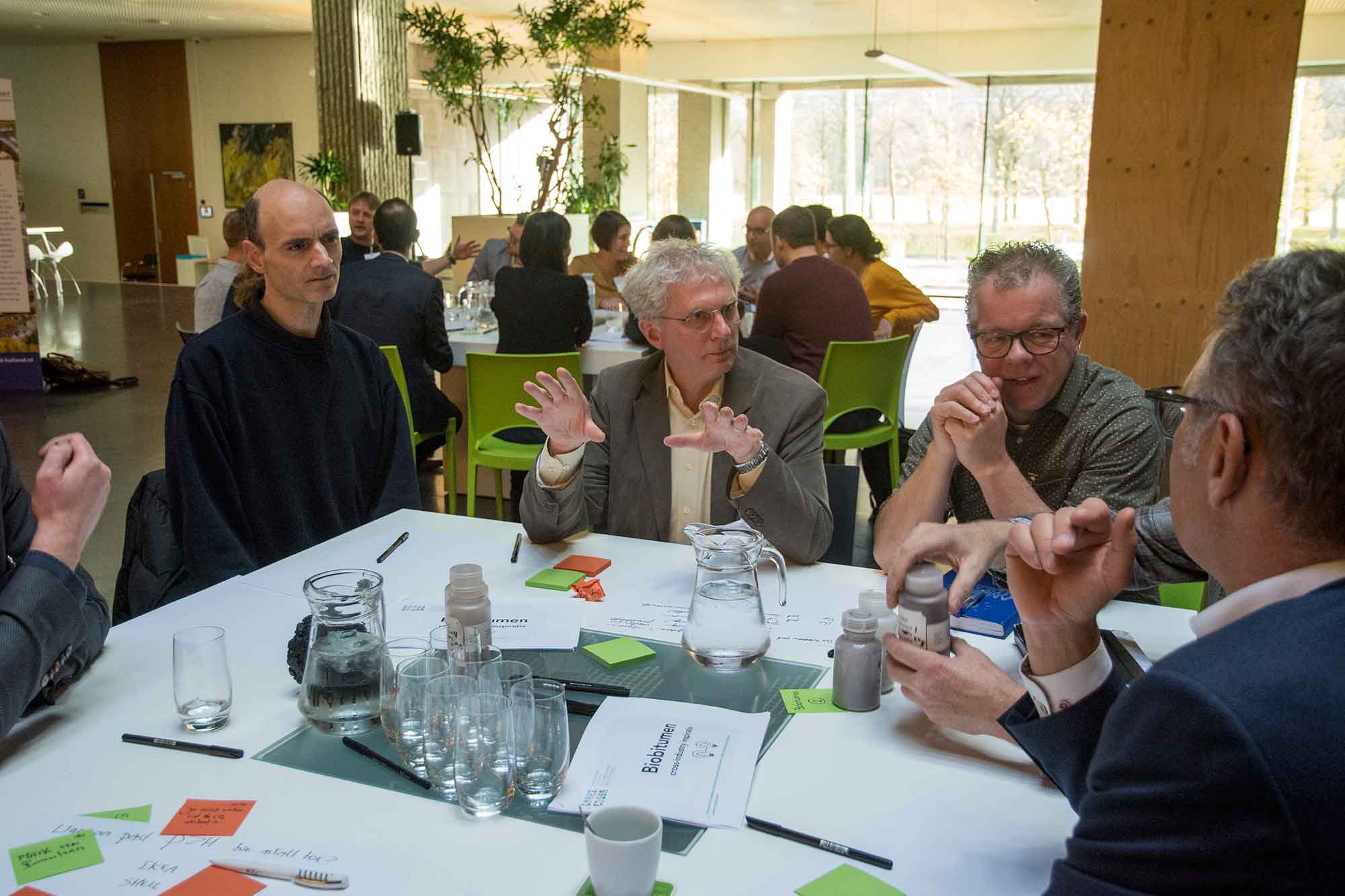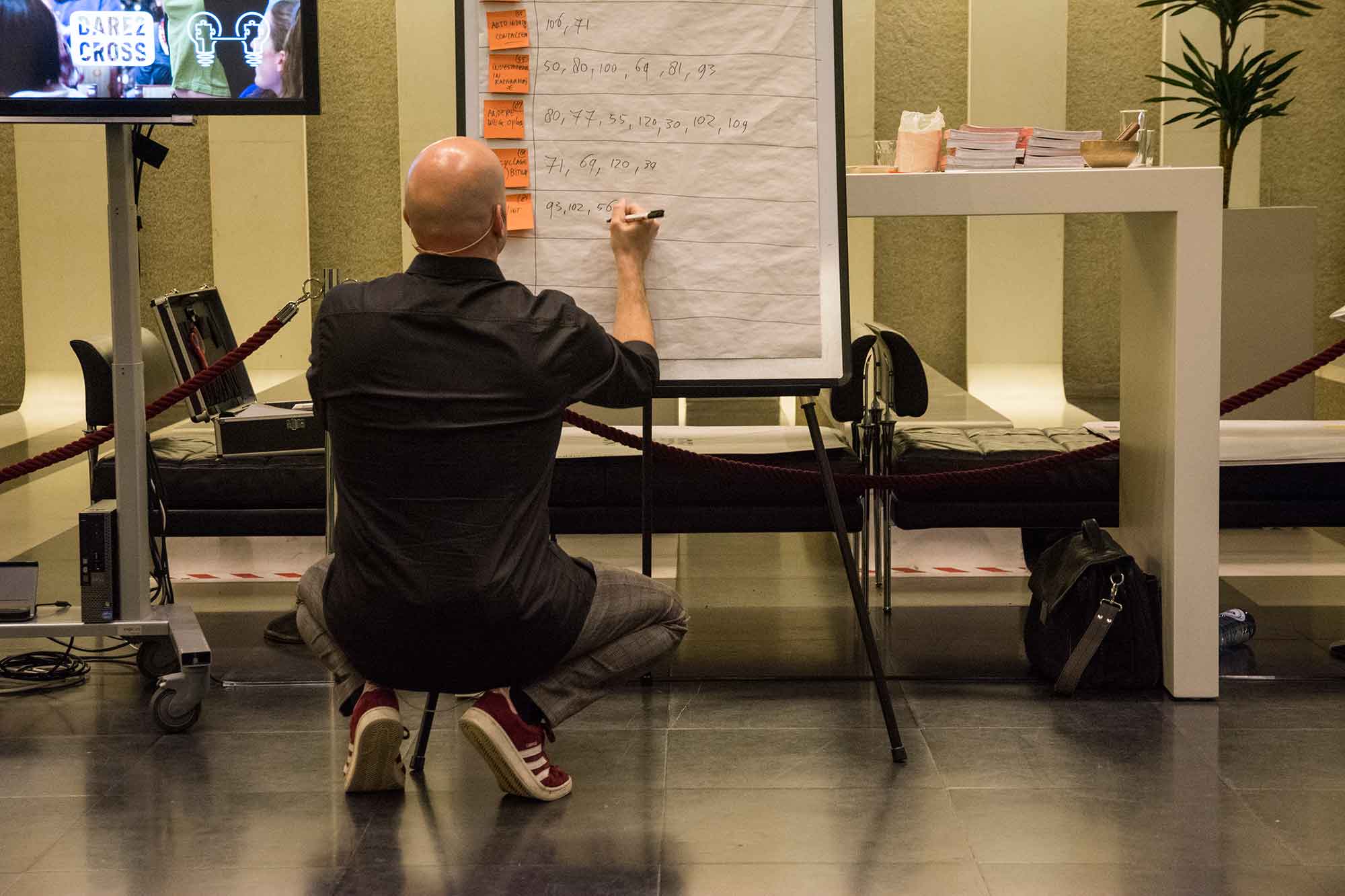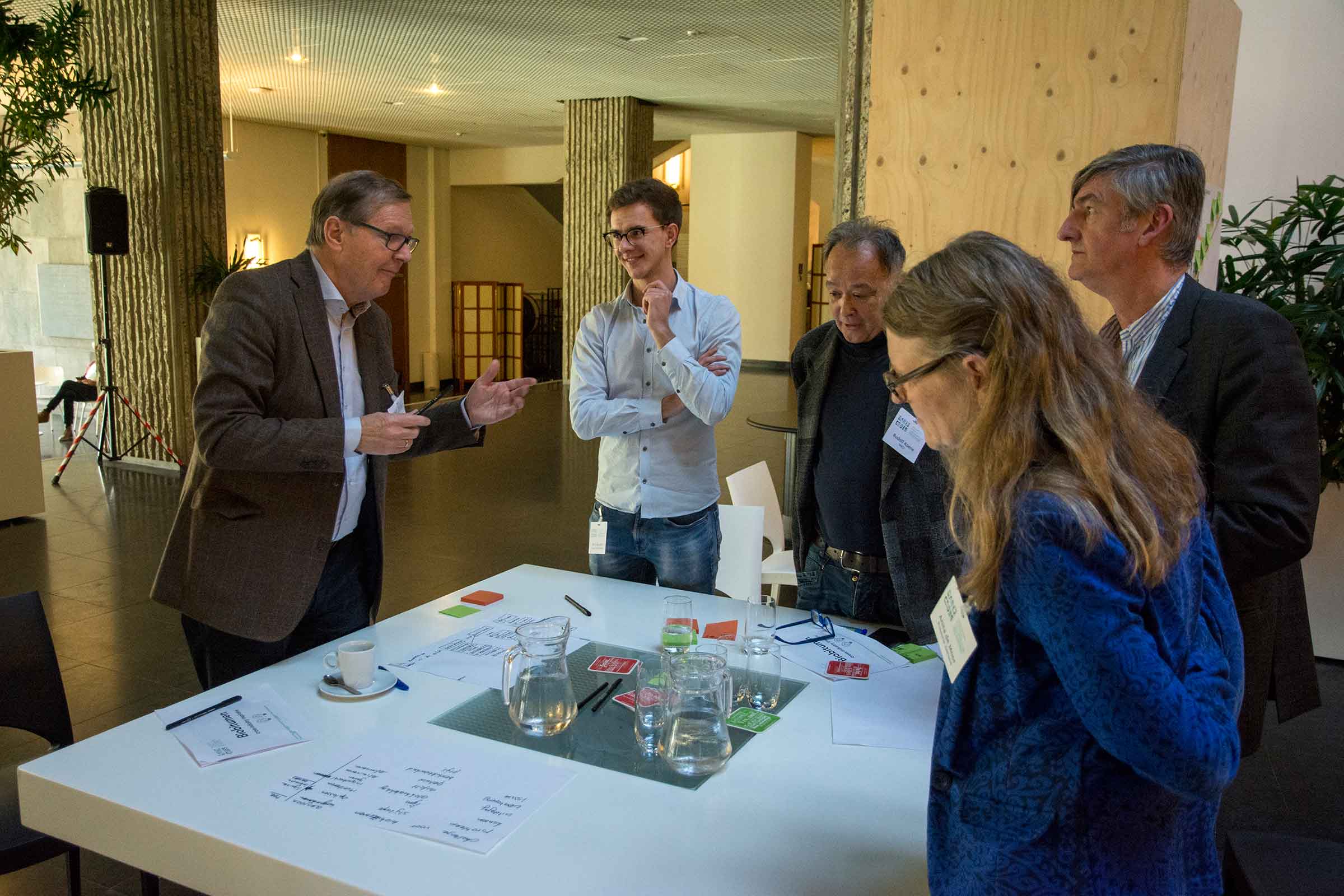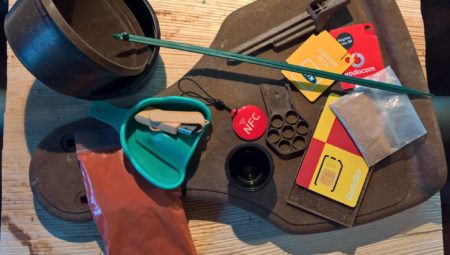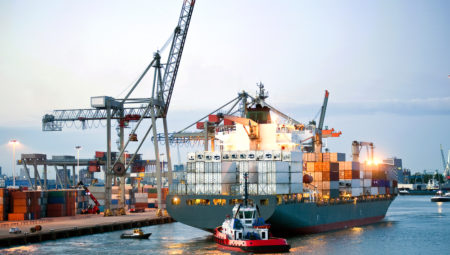This was what the Dare2Cross meeting was about: Beauty and the Biobased / Matching supply & demand on 30 November in The Hague. About eighty participants from various sectors and chain positions sat down together at the Zuid-Holland provincial house to look at tangible business cases in a new way: the sustainable remodelling of the provincial house, the replacement of fossil bitumen in asphalt by biobitumen, connecting agriculture and horticulture with the sales markets for natural fibres, harmonisation of supply and demand of recycled and/or biobased plastic for 3D printing and the development and scaling up of bioplastics from waste water purification (PHA).
Bringing out the good
IdeaDJ Ramon Vullings joined the various items for that day using examples and techniques to detach participants from their own realm of though and encouraging them to look further at the possibilities that previously seemed impossible. Looking beyond the sector boundaries stimulates creativity and can lead to new alliances. And that is exactly the aim of this approach, says Henk Vooijs from InnovationQuarter, one of the organisers of Dare2Cross. “With this concept, we not only want to generate new ideas, but also take these ideas one step further, so that the parties at the table here will take part and the cases discussed here will actually take off.”
The sub-title to the meeting – Beauty and the Biobased – refers to how something good can also come from something “bad”. Vooijs: “You can make very beautiful things using biobased materials, but it is also still really difficult to market applications properly. Here we bring the beautiful and the difficult – the “beast” in the business cases – together. We bring out the good from the bad properties of the beast, by thinking in reverse.”
Copy-Adapt-Paste
An example of this reverse thinking is what Ramon Vullings calls “cross industry innovation”: the roof of a waste incinerator is used as a ski slope in winter. A controller from a games console that is used to operate a submarine periscope. The beak of a kingfisher that serves as inspiration for the nose of a high speed train. An MRI scanner designed to look like an amusement park ride for children, turning an unpleasant medical examination into a fairy tale. “An idea is not necessarily an invention, but rather a smart combination that adds value”, according to Vullings. It is not about copy-paste, or exactly copying another person’s ideas, but rather about adapting these ideas: copy-adapt-paste.
Creativity also starts with breaking through the terminology that certain sectors are trapped in. By giving a process, service or product a different name, it can evoke an entirely different experience. This is referred to as the “business synonyms method”. The application of these and other techniques to the themes in Dare2Cross ultimately resulted in lots of ideas, but also in new and sometimes unexpected questions. Such as: “Bio bitumen does not smell the same as asphalt, how can we demonstrate that the emissions are not harmful?”, or: “How can we guarantee that a building that is built sustainably today remains truly sustainable over the next fifteen years?” During the network auction at the end of the day, participants were able to register with questions and solutions to continue the discussion.
Start early
Such an approach will undoubtedly result in new contacts. However, quite a few developments in the biobased economy are in the phase of technological development. Is it perhaps too early to look at marketing with an approach such as Dare2Cross? Willem Sederel, board member of Biobased Delta and supporter of the biobitumen case himself, thinks that this is not the case. “If you focus too much on the technology without thinking about the entire value chain that needs to take part, the partners that you need for this and ultimately also the market parties that need to buy and use your product, then the project is doomed. I am a proponent of finding partners in that value chain as soon as possible. You cannot start this process soon enough.”
This article was created in cooperation with Biobased Delta

